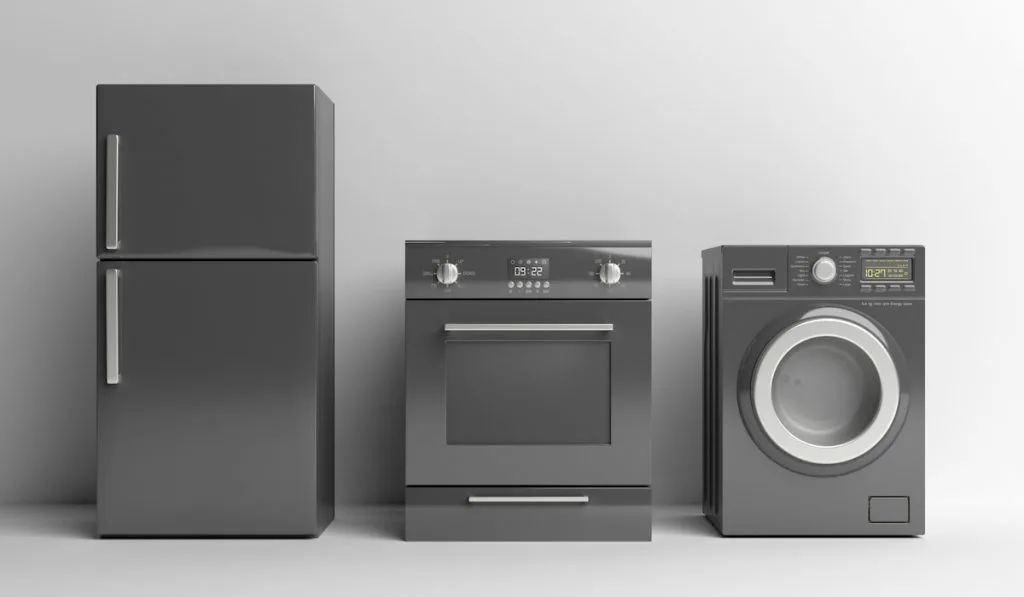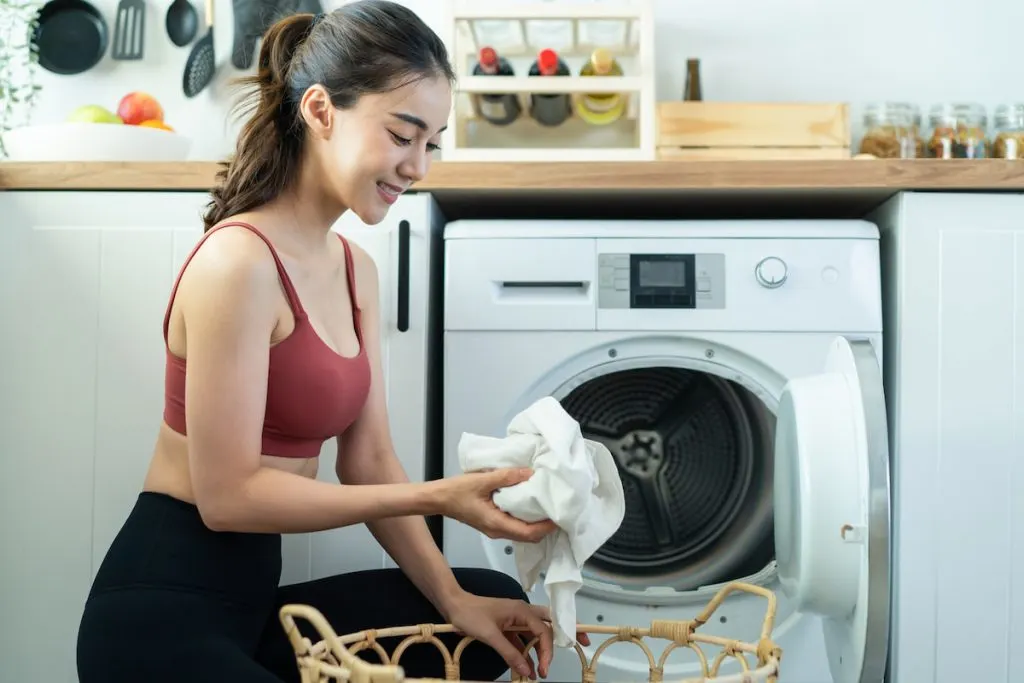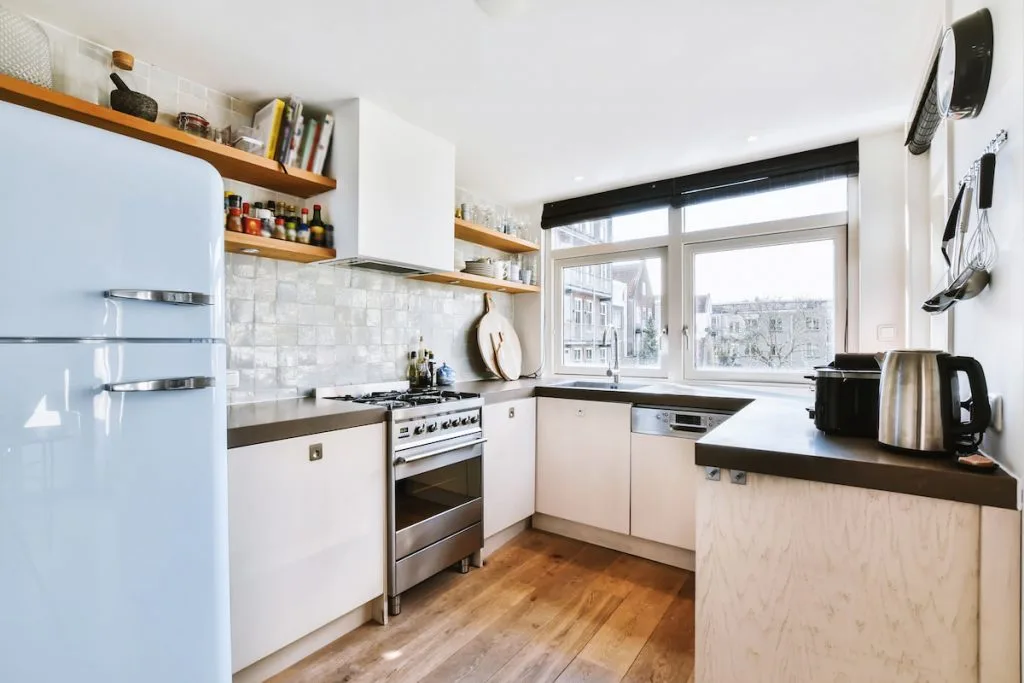There aren’t a lot of rules around what a landlord or apartment complex management team is required to provide tenants with in terms of features and appliances. However, anything that is inside the apartment should be operational, and there are laws around fire safety, etc., that must be followed.
But do apartments always come with appliances?
The short answer is no, they don’t. Many complexes and apartments come with basic appliances, and others have nicer appliances as an added feature to getting higher rent prices and longer-term tenants.
If you’re looking for a new apartment, finding out which appliances they provide could save you a lot of money. It could also spare you some unwanted surprises if you are expecting something to be there that isn’t.

Here’s some information about how apartments handle appliances for tenants that can help you make a good decision on a new place.
The Basic Appliances Most Apartments Provide
At the very least, you can expect your apartment to have a refrigerator and a stove. These two kitchen basics have worked themselves into tenants’ “required” lists.
Why are they in there? Well, fridges and stoves are something everyone uses and can cost several hundred dollars apiece.
Your average tenant isn’t going to want to buy a new refrigerator or stove before they move in. They’re large and clunky, and moving them from place to place is a major pain.
Prospective tenants also are very likely to skip any apartments that don’t have one or both of these two appliances. Landlords know this and have to have them in the unit if they want to rent it quickly, or at all.

Appliances You’ll Probably Find in an Apartment
Now we’re getting into some of the optional appliances that apartments offer tenants. Some of these include:
- Microwaves
- Washing Machines
- Dryers
- Dishwashers
A microwave or a toaster oven is fairly common to find in an apartment, especially in a nicer or newer complex.
Also, if you’re renting an apartment from the owner, you’re likely going to have access to a lot of their appliances because they probably don’t want to take them out and leave them in storage. They figure if they used it, you likely will as well.
In terms of washing machines and dryers, it’s really a toss-up. Some places have them, and others don’t.
Some homes and apartments advertise washer and dryer hookups to let prospective tenants know that they can bring their appliances along with them, but there aren’t already appliances installed.
The biggest determining factor in whether there are more and nicer appliances in an apartment is cost. Washing machines, dishwashers, and dryers must be used properly to last several years.
If they’re not treated well, they break and repairs can be very costly. Many landlords don’t want to run the risk of mistreatment by tenants. If something goes wrong with an appliance in a rented apartment, it’s on the landlord or management team to take care of repairs.
Who Is Responsible for Appliances in a Rental Property?
The answer to this question is, it depends. For the most part, landlords and property managers are responsible for appliances that they own that are inside a rented apartment. They are expected to keep up with general maintenance and any unexpected repairs.
The only exception is if there is significant negligence or damage is intentional. For example, if a tenant repeatedly refuses to use a dryer properly by not clearing the lint out or putting too many items inside.
However, the intent is very difficult to prove, and if the tenant refuses to pay for the repairs, the landlord’s only recourse is to take the problem to the courts.
Again, since it’s very difficult to prove whether the damage was intentional, most of the time they won’t even try.
That’s why a lot of property owners and managers limit available appliances. They don’t want to deal with the cost and logistical challenges of repair and maintenance.

Finding Apartments with Nice Appliances
If having nice appliances available to you in an apartment is important, here are some things you can do to find the right place.
Be Prepared to Pay More – Appliances provided by the apartment mean you have to spend less money on purchasing them yourself. Expect to pay a bit more in rent for a dishwasher and laundry appliances.
Look in New Complexes – New complexes are more likely to have nice, new appliances. Older apartments need a lot of work to install, say, a dishwasher in an aging kitchen. Modern places want to draw in high-quality tenants with attractive appliances.
It Never Hurts to Ask – If you’re interested in renting an apartment but there is no microwave or washer and dryer, it never hurts to ask. Inquire whether it’s possible to install them before you move in.
Most things are negotiable in a lease. Landlords aren’t always accustomed to getting these types of requests, but that doesn’t mean they will refuse.
They may ask you to sign a longer lease to help them offset the cost of a washing machine, but you might be able to work something out.
Negotiate Buying Them Yourself with a Break on the Rent – It’s important to remember that, for most property owners, having tenants in their apartments is about making money.
It’s a business. You’ll be hard-pressed to find a landlord willing to buy you an appliance that wasn’t listed in the lease because they are feeling nice.
Instead, speak to their sensibilities and try to negotiate a good solution for both of you. If you propose buying them yourself, for example, you can ask for a break on the rent to offset your costs.
Once you break even on the costs of the appliances you buy, then they can belong to the landlord and stay there for the next tenant. The landlord may not mind because then they can advertise the apartment for more money down the road.
These are just some ways that you can find the appliances you need in an apartment. Check listings, don’t be afraid to ask, and keep open communication with the owners.
